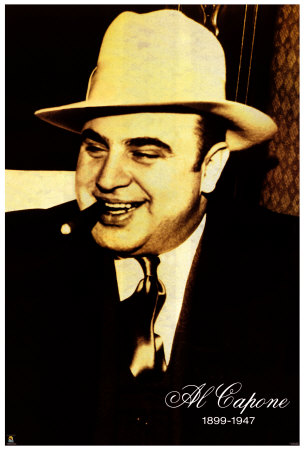
Anti-Corruption Efforts Fail in Washington, D.C. Just as They Do in Kabul
The powerful in both countries protect their friends and associates
Reading time: (Number of words: )
It is just as difficult to arrest a corrupt official in Washington, D.C. as it is in Kabul. In both capitals, senior justice officials weigh the seriousness of the offense against the political importance of the defendant and the embarrassment to their President of any prosecution. In both capitals, the powerful protect their friends and associates.
In July, 2010, Mohammed Zia Salehi, a senior aide to the Afghan President, was arrested in a night raid on his home in Kabul. He was almost immediately freed by order of President Hamid Karzai. While President Karzai’s intervention generated blustery statements of outrage from American officials, the same conduct regularly occurs in Washington, D.C.
In January 2010, the U.S. Department of Justice’s Inspector General released a report obscurely entitled: “A Review of the Federal Bureau of Investigation’s Use of Exigent Letters and Other Informal Requests for Telephone Records.” It is a stunning indictment of national security abuses by the Federal Bureau of Investigation (FBI).
The Inspector General (IG) discovered more than 2,000 instances in which FBI officials made false official statements and asserted fake terrorist emergencies in an effort to obtain confidential records.
The IG found that many of these abuses were committed by senior officials and were knowing violations of the law. Regardless, Inspector General Glenn A. Fine refused to call for criminal prosecutions. The FBI’s General Counsel, Valerie Caproni told the Washington Post that the 2,000+ criminal acts by FBI officials were mere “technical violations” and dismissed their significance.
These officials adhere to what is called the “consensus theory of justice.” Under this theory, the crime rarely matters; what matters is reaching consensus regarding the political implications of the prosecution.
Preventing embarrassment to the Administration and its friends is the compass that seems to guide decisions by the U.S. Department of Justice.
Some Justice Department prosecutors have the ability to ignore the reality of what they are doing and instead are able to rationalize away the criminal conduct. They convince themselves that government criminals have “noble motives,” and are acting in the public interest, and therefore it would be unfair to punish them. That is the same mindset that viewed slavery as noble, the extermination of native American Indians as just, and the internment of Japanese-Americans during the Second World War as necessary. The weak-willed always seem to have an excuse for their misconduct or inaction.
Anyone researching crimes committed by Obama or Bush Administration officials would be hard pressed to find any significant prosecutions, especially among security, law enforcement and military officials. Take for example the December 31, 2009, findings by U.S. District Court Judge Ricardo M. Urbina, in “United States v. Slough.”
Judge Urbina concluded that Justice Department attorney Kenneth C. Koh and his trial team made false statements to the court and withheld evidence of innocence from the grand jury.
Despite these serious findings of criminal and ethical misconduct, Attorney General Eric Holder refused to prosecute the officials involved (apparently viewing their motives as “noble”).
Other crimes have been documented by the news media. On November 27, 2003, the Baltimore Sun published an article by John Hendren entitled: “Kin of Top Hussein Deputy Held,” Hendren reported that troops of the U.S. Fourth Infantry Division had arrested the wife and daughter of Izzat Ibrahim al-Douri, the former vice-president of Iraq, who was suspected of assisting the Sunni rebels.
The Associated Press followed up on the story after the U.S. military began to expand its circle of arrests to include relatives of al-Douri. See “Raid Leads to Arrest of al-Douri Relatives,” Fox News, January 14, 2004. The AP reported that al-Douri’s wife and daughter were still in prison. At this point it became clear that they were being held as hostages and were being used as leverage to try and force vice-president al-Douri to surrender. Lt. Colonel William MacDonald, at 4th Division headquarters refused any comment, while military spokesman Colonel William Darley would only say that there were “special circumstances” involved. Amnesty International USA announced that it was alarmed by this new tactic.
The U.S. military’s tactic of taking the wives of insurgents as hostages, apparently continued for years.
In 2006, the Associated Press reported that the U.S. military was again seizing the wives of suspected insurgents, holding them for ransom in return their husbands’ surrender. One of the wives was a young woman who was still nursing her newborn child, from whom she was forcibly separated. See “U.S. Army Jailed Iraqis’ Wives as Leverage” - Fox News, January 27, 2006. Again there were no prosecutions of any of these military officials. Somehow Pentagon and Justice Department officials were able to rationalize away these war crimes.
The fact that the American government and justice system could condone such outrageous misconduct should frighten the American public far more than any threats by al-Qaeda.
In conclusion, as it seems virtually impossible to arrest or even discipline an official of the Obama Administration; it should not surprise anyone that this same concept of “justice” is practiced by the Government of Afghanistan.

Poems for the Hazara
The Anthology of 125 Internationally Recognized Poets From 68 Countries Dedicated to the Hazara
Order Now









